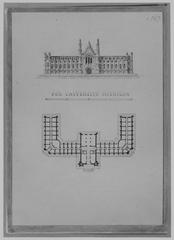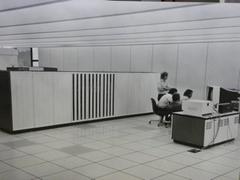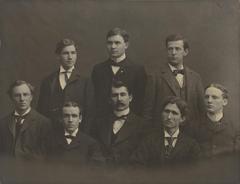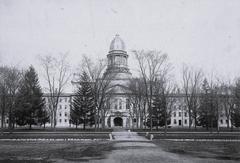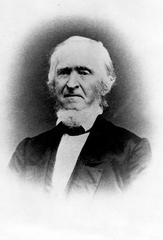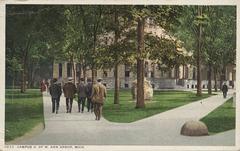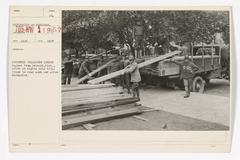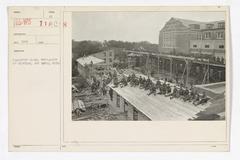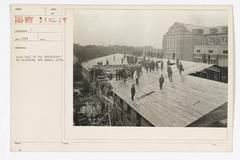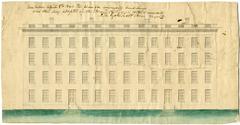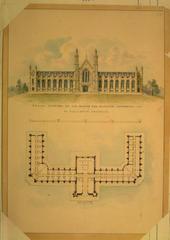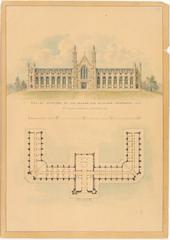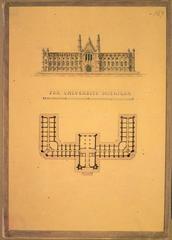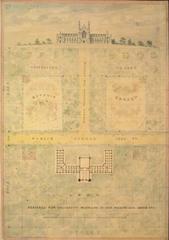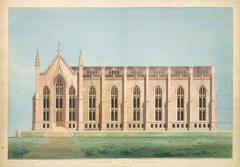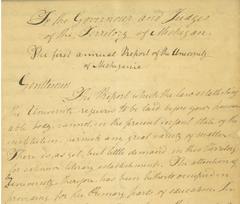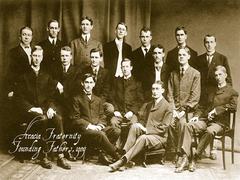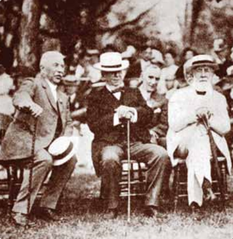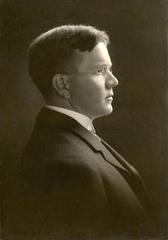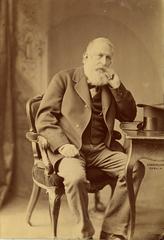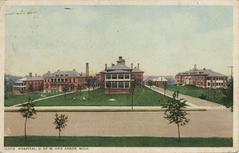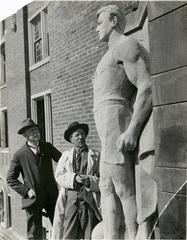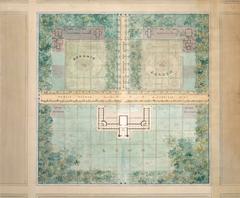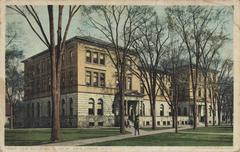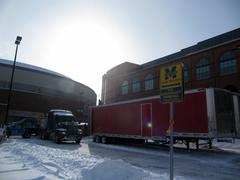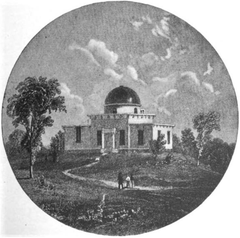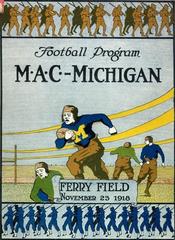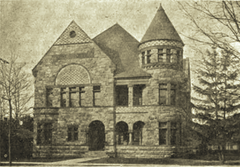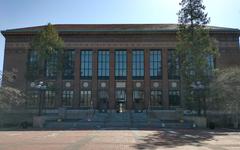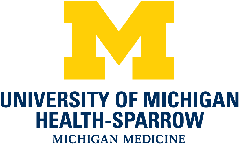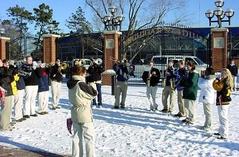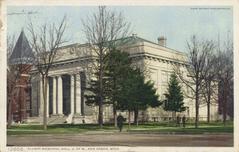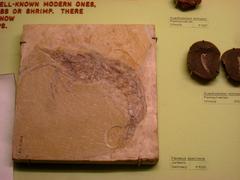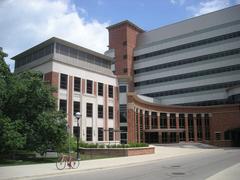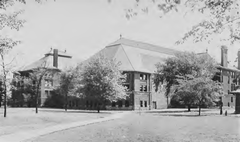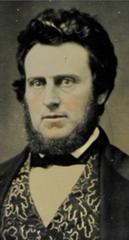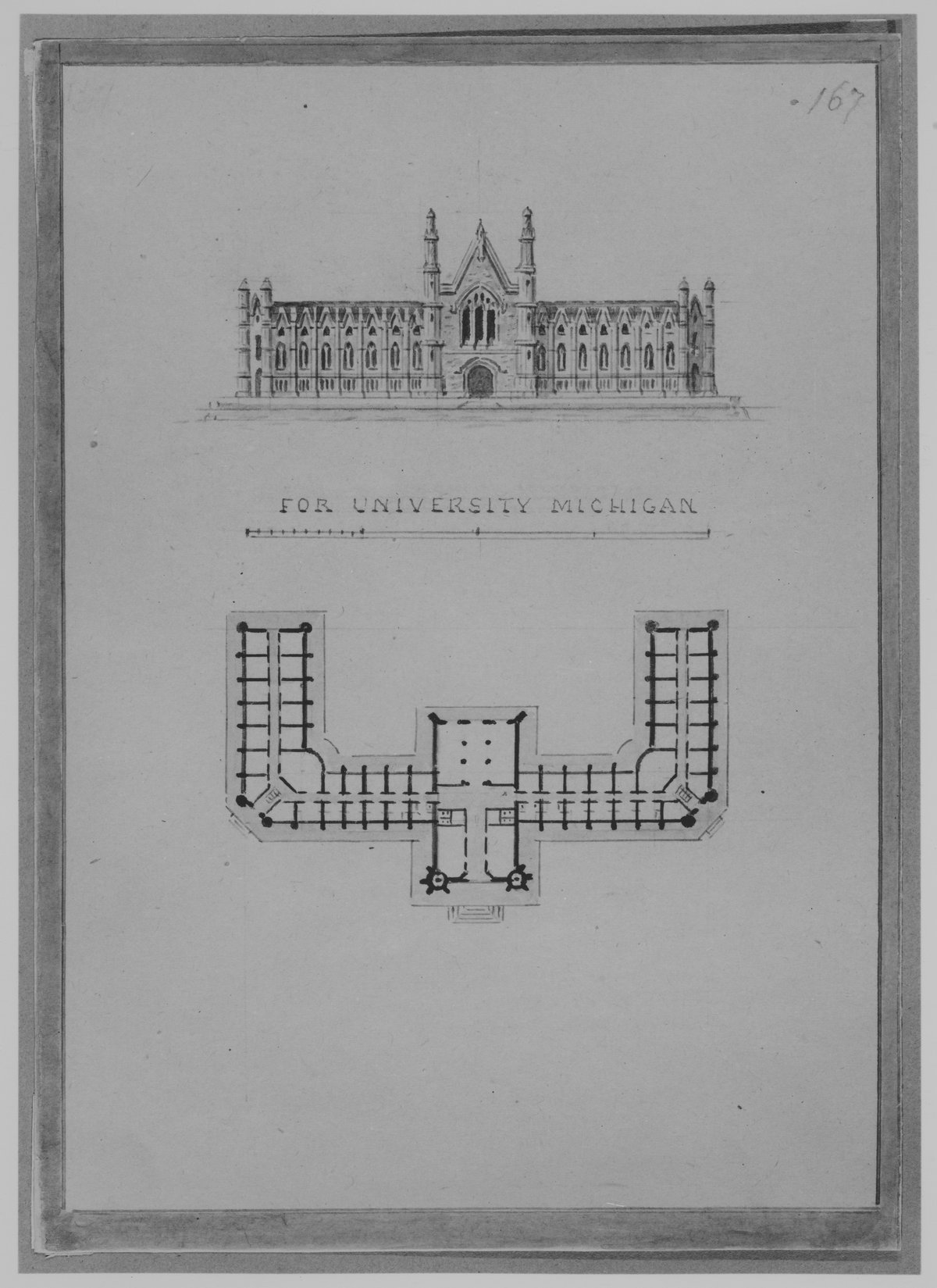
University of Michigan Ann Arbor: Visiting Hours, Tickets, and Historical Sites Guide
Date: 14/06/2025
Introduction
The University of Michigan in Ann Arbor stands as a beacon of academic achievement, rich history, and dynamic campus life. Established in 1817 and relocated to Ann Arbor in 1837, it has evolved into one of the world’s leading public research universities. Its campus blends historic and contemporary architecture, vibrant student traditions, and a welcoming college town atmosphere. Whether you’re a prospective student, history enthusiast, or tourist, Ann Arbor and the University of Michigan offer a memorable experience that combines intellectual, cultural, and natural attractions.
This guide is designed to help you plan your visit by providing essential information about campus tours, visiting hours, ticketing, accessibility, architectural highlights, key traditions, and travel tips. You’ll also find recommendations for exploring Ann Arbor’s renowned cultural venues, historic sites, and culinary hotspots. For interactive maps and real-time updates, consider the Audiala app. For official resources and visitor support, visit the University of Michigan Official Visitor Center and Ann Arbor Tourism.
Table of Contents
- Early Foundations and Growth
- Academic Excellence and Research Leadership
- Visiting the University of Michigan: Hours, Tickets, and Tours
- Architectural and Cultural Landmarks
- Student Life and Traditions
- Ann Arbor Historical Sites and Attractions
- Essential Visitor Tips
- Campus Tour Guide: Must-See Attractions, Hours, and Tickets
- Campus Life and Culture: Visitor Information
- Harris Hall: History, Visiting Tips, and FAQs
- Summary and Final Tips
- Sources
Early Foundations and Growth
The University of Michigan was founded in Detroit in 1817 as a preparatory school, before relocating to Ann Arbor in 1837. The move was catalyzed by a 40-acre land donation—now the iconic Diag. Early campus life was rustic; faculty grazed livestock on the grounds and wheat was grown as part of staff compensation. By the mid-19th century, the university had grown rapidly, becoming the largest in the nation by 1866 and helping transform Ann Arbor into a thriving educational hub.
Academic Excellence and Research Leadership
Today, the University of Michigan is consistently ranked among the top public universities globally, excelling in fields such as social sciences, engineering, medicine, psychology, and business. The institution serves nearly 50,000 students from all 50 U.S. states and over 99 countries, offering more than 250 undergraduate majors, 200 master’s programs, and 100 doctoral degrees. Its commitment to research and innovation has a global impact, shaping advancements in science, technology, and the humanities.
Visiting the University of Michigan: Hours, Tickets, and Tours
General Visiting Hours
- Outdoor Spaces: The Diag and other outdoor landmarks are open from dawn to dusk year-round.
- Buildings: Facilities such as the Michigan Union, libraries, and museums generally operate Monday–Saturday, 9 AM–5 PM. Verify specific locations for updated hours.
Campus Tours and Ticketing
- Guided Tours: Available Monday–Saturday, lasting 60–90 minutes. Advance tickets required; purchase via the University of Michigan Tours website.
- Self-Guided Tours: Free and accessible via downloadable maps or official mobile apps.
- Special Events: Open houses, cultural festivals, and lectures are hosted throughout the year—check the university events calendar for details.
Accessibility
The campus features paved paths, ramps, elevators, and accessible restrooms. Service animals are permitted, and accommodations are available for visitors with disabilities.
Architectural and Cultural Landmarks
- Law Quadrangle: Gothic architecture with tranquil courtyards, open daily.
- Michigan Union and League: Historic student centers and event venues.
- The Diag: The campus’s symbolic heart, marked by the iconic brass “M.”
- The Cube: A large, rotating sculpture—spinning it is a Michigan tradition.
- Burton Memorial and Lurie Towers: Listen for carillon concerts during your visit.
Explore these sites virtually using the university’s online campus tour for a preview of key landmarks.
Student Life and Traditions
University traditions include:
- Orientation Fountain Walk: New students cross a campus fountain, symbolizing their entry into the community.
- Graduation Traditions: Graduates walk the reverse route, signifying their transition to alumni.
- Sports Culture: Experience the excitement of a football game at Michigan Stadium (“The Big House”), the largest stadium in the U.S. with over 107,000 seats.
- Student Organizations: With over 1,400 clubs, there’s a vibrant extracurricular scene for all interests.
Ann Arbor Historical Sites and Attractions
Beyond campus, Ann Arbor is renowned for its cultural and natural attractions:
- Nichols Arboretum & Matthaei Botanical Gardens: Trails, gardens, and the famous Peony Garden.
- The Ark: One of the country’s best folk music venues.
- Downtown Ann Arbor: Lively restaurants, independent shops, galleries, and year-round festivals.
These highlights underscore the city’s strong connection to the university and its community-oriented spirit.
Essential Visitor Tips
- Plan Ahead: Reserve tours and tickets in advance, especially during major events.
- Best Seasons: Spring and fall offer the most pleasant weather and vibrant campus life.
- Transport: The campus is walkable, with a free blue bus system connecting key areas. Visitor parking is available but limited during events.
- Accessibility: Most buildings and paths are wheelchair friendly; consult the university’s accessibility information.
- Dress Comfortably: Wear walking shoes and check the weather forecast.
For navigation and updates, utilize the Audiala app.
Campus Tour Guide: Must-See Attractions, Hours, and Tickets
Central Campus
- The Diag: Central green space flanked by Hatcher Library and Angell Hall.
- Michigan Union: Open daily 7 AM–11 PM, offers dining and study spaces.
North Campus
- Home to engineering, art, and music schools. Easily accessible by free campus buses.
South and Medical Campuses
- Michigan Stadium: Stadium tours typically Monday–Friday, 10 AM–3 PM (hours may vary during football season). Tickets ~$10; purchase via Michigan Athletics.
- Yost Ice Arena & Crisler Center: Home to hockey and basketball.
Other Attractions
- Law Quadrangle: Open dawn–dusk.
- Nichols Arboretum: Free entry, dawn–dusk.
- Hatcher Graduate Library: Open weekdays 8 AM–11 PM.
- Zingerman’s Delicatessen: Gourmet sandwiches; open daily 8 AM–8 PM.
- State Theater & Kerrytown Market: Local culture and shopping.
- Ann Arbor Farmers’ Market: Saturdays year-round, 7 AM–3 PM.
Campus Life and Culture: Visitor Information
Diversity and Demographics
U-M’s student body represents all 50 states and over 100 countries, maintaining a strong commitment to inclusivity (Niche).
Housing and Dining
First-year students are guaranteed housing in 18 residence halls, with dining options focusing on sustainability (Student Life).
Academic Atmosphere
The university is known for its rigorous academics and collaborative community.
Organizations and Athletics
Over 1,600 student organizations, Big Ten athletics, and extensive intramural sports (Student Life).
Campus Resources
Comprehensive support includes counseling, food assistance, and health services (Student Life Impact Report).
Safety and Accessibility
Security is provided through 24/7 patrols and emergency phones. The campus is designed for accessibility (Student Life).
Culture and Arts
- Museums: UMMA and Kelsey Museum of Archaeology.
- Performances: University Musical Society, Hill Auditorium.
- Events: Ann Arbor Summer Festival (Ann Arbor Summer Festival).
Harris Hall: History, Visiting Tips, and FAQs
History and Significance
Harris Hall, completed in 1909, is a historic Tudor Revival building on campus. Listed on the National Register of Historic Places, it has served academic and community purposes over the decades.
Visiting Hours and Tickets
- Exterior Access: Open year-round.
- Guided Tours: Include Harris Hall; tickets ~$10/adults, $7/seniors/students, free for children under 12. Book via the official visitor center.
Accessibility
The area is wheelchair accessible with paved walkways. Parking nearby is limited; use public transportation or university shuttles.
Special Events
Seasonal events and heritage days may provide limited interior access—check the university’s events calendar for updates.
Nearby Sites
- Michigan Union
- Hill Auditorium
- Law School
- UMMA
- Nichols Arboretum
Photography Tips
Best photographed in the soft light of early morning or late afternoon, Harris Hall’s architecture makes it a compelling subject.
FAQ
- Is Harris Hall open to the public?
Exterior is accessible; interiors may be closed due to redevelopment. - Are there fees?
Exterior viewing is free; guided tours require tickets. - Can I take photos inside?
Interior photography is restricted. - How do I get there from Detroit Metro Airport?
Taxi, rideshare, or shuttle services connect DTW to Ann Arbor.
Summary and Final Tips
The University of Michigan and Ann Arbor offer visitors a diverse tapestry of academic excellence, historic landmarks, cultural attractions, and scenic beauty. From the grandeur of Michigan Stadium and the Gothic Law Quadrangle to the serenity of Nichols Arboretum, there’s something for every interest. Plan ahead by booking tours, checking visiting hours, and utilizing campus resources for an accessible and enriching visit. Make the most of your trip by exploring both campus highlights and Ann Arbor’s vibrant downtown and nature spots.
For the latest updates and resources, refer to:
- University of Michigan Office of Undergraduate Admissions
- Michigan Athletics
- Ann Arbor Summer Festival
Sources
- University of Michigan Official Visitor Center (https://visit.umich.edu)
- Michigan Athletics (Stadium Tours) (https://mgoblue.com)
- Ann Arbor Tourism and Visitor Information (https://www.annarbor.org)
- Accessibility Information (https://accessibility.umich.edu)
- Niche (https://www.niche.com/colleges/university-of-michigan-ann-arbor/students/)
- Student Life (https://studentlife.umich.edu/)
- Ann Arbor Summer Festival (https://www.annarbor.org/blog/stories/post/ann-arbor-summer-festival/)
- Time Out Ann Arbor (https://www.timeout.com/ann-arbor)
